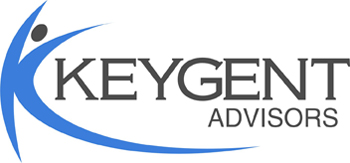Keygent offers continuing disclosure dissemination agent services and CDIAC filing services.
Review of past continuing disclosure filings
Monitor credit rating changes
Send out quarterly reminders of continuing disclosure obligations
Prepare and file annual reports
Prepare and file material event notices
Prepare CDIAC filings
What is Keygent's Continuing Disclosure Filing Program?
Each issuance of publicly-sold bonds includes a continuing disclosure certificate which states that the issuer agrees to provide certain information to the investment community. It is required by Rule 15c2-12 of the Securities Exchange Act of 1934. The Rule requires an annual report and notices of material events to be filed on the Municipal Securities Rulemaking Board's website. Each outstanding financing typically requires its own filing. Keygent’s Continuing Disclosure Filing Program currently assists approximately 60 California K-14 districts to comply with the requirements.
The annual report may require items such as:
1. Prior year audited financials.
2. Current year budget.
3. Current year interim reports.
4. State funding received by the District.
5. Enrollment of the District.
6. Outstanding District indebtedness.
7. Summary financial information on revenues, expenditures and fund balances for the District’s general fund.
8. The assessed valuation of taxable property within the District.
9. Secured tax levy collections and delinquencies within the District.
10. Twenty largest local taxpayers in the District in terms of their secured assessed valuations.
Material event notices must be filed within 10 business days for items such as:
1. Principal and interest payment delinquencies.
2. Non-payment related defaults.
3. Unscheduled draws on debt service reserves reflecting financial difficulties.
4. Unscheduled draws on credit enhancements reflecting financial difficulties or a change in identity of the credit enhancement provider or their failure to perform.
5. Substitution of credit or liquidity providers, or their failure to perform.
6. Adverse tax opinions or events affecting the tax-exempt status of the security.
7. Modifications to rights of securities holders.
8. Bond calls.
9. Defeasances.
10. Release, substitution, or sale of property securing repayment of the securities (Certificates of Participation and Lease Revenue Bonds).
11. Rating changes.
12. Tender offers.
13. Bankruptcy, insolvency, receivership or similar proceedings.
14. Mergers, consolidations, acquisitions, the sale of all or substantially all of the assets of the obligated person or their termination, if material.
15. Appointment of a successor or additional trustee or the change of the name or a trustee, if material (bank trustee, not Board trustee).
16. Failure to provide annual financial information as required.
17. Incurrence of a financial obligation of the issuer or obligated person, if material, or agreement to covenants, events of default, remedies, priority rights, or other similar terms
of a financial obligation of the issuer or obligated person, any of which affect security holders, if material.
18. Default, event of acceleration, termination event, modification of terms, or other similar events under the terms of the financial obligation of the issuer or obligated person,
any of which reflect financial difficulties.
What is Keygent's CDIAC Filing Program?
As required by Senate Bill 1029, each issuer is required to file an annual report with the California Debt and Investment Advisory Commission ("CDIAC") for debt issued after January 21, 2017. The annual reports are due on January 31st each year. The report must include information about debt issued and outstanding and the use of proceeds from debt during the reporting period, including:
1. Information about debt authorized, including amounts issued, lapsed, and not yet issued at the start and end of the reporting period.
2. Information about debt outstanding, including amount paid during the reporting period and balances at the start and end of the reporting period.
3. Information about debt issued during the reporting period, including proceeds available, amount spent and amount remaining, and purposes for which it was spent.
Keygent’s CDIAC Filing Program files the required information on an annual basis. Additionally, issuers are required to have a debt policy in place prior to the issuance of any new debt per Senate Bill 1029. Keygent has assisted numerous K-14 districts with the implementation of a debt policy to comply with the new law.

